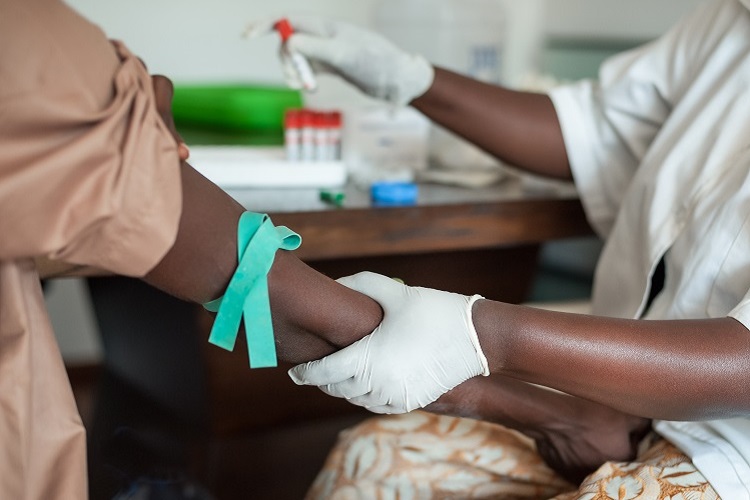5 February 2021
The unmet HIV prevention and treatment needs of female sex workers and especially their male clients could contribute substantially to ongoing HIV transmission in South Africa, according to a new study led by researchers at the NIHR Health Protection Research Unit in Behavioural Science and Evaluation at University of Bristol.

The researchers used mathematical modelling to look at the contribution of commercial sex, sex between men, and other heterosexual partnerships to HIV transmission in South Africa.
They found that, over a ten-year period (2010-19), sex between female sex workers and their paying clients contributed 6.9 per cent of new HIV infections, while sex between clients with their non-paying partners contributed 41.9 per cent. Sex between men contributed 5.3 per cent and sex between men who have sex with men and their female partners contributed 3.7 per cent.
The study, published in Journal of the International AIDS Society, also looked at the potential impact and efficiency of increasing HIV treatment among each risk group. Increasing treatment among female sex workers, their paying clients and men who have sex with men would be up to five times more efficient for reducing HIV transmission than increasing treatment among the general population.
Dr Jack Stone, from Bristol Medical School and lead author of the study, said: “South Africa has made considerable investment in scaling up interventions for preventing and treating HIV and are close to achieving the UNAIDS HIV treatment targets. However, the rate of new HIV infections remains over twice the UNAIDS 2020 target. To close this gap, and to regain momentum, the HIV response must adapt to focus on those communities where the risks and disease burden are greatest, which for South Africa are the paying clients of female sex workers.”
Professor Peter Vickerman, from the NIHR Health Protection Research Unit in Behavioural Science and Evaluation at the University of Bristol, who supervised the study, said: “The HIV response in South Africa has traditionally focused on the general population. This is based on the assumption that key populations such as female sex workers and men who have sex with men play a small role in HIV transmission in countries where HIV is endemic. Our findings show this is not the case and suggest that South Africa, and indeed other countries, may not be focusing new initiatives on those who most need them, which, in South Africa, are the paying clients of female sex workers.”
Dr Jenny Coetzee, CEO of the African Potential Foundation and Principal Researcher at the Perinatal HIV Research Unit, who contributed data from a study on male clients, commented that: “The response to HIV in South Africa places the burden of responsibility for prevention and behavioural change upon women. It is vital that we begin to draw men into the solution. This study highlights the importance of a criminalised and often marginalised group of men who have clearly been overlooked in our national response”.
Paper: Estimating the contribution of key populations towards HIV transmission in South Africa. Jack Stone et al. Journal of the International AIDS Society. 2 February 2021.
Further information
About the NIHR Health Protection Research Unit [HPRU] in Behavioural Science and Evaluation at the University of Bristol
The NIHR HPRU in Behavioural Science and Evaluation at University of Bristol is one of 14 HPRUs across England, part of a £58.7 million investment by the NIHR to protect the health of the nation.
The NIHR HPRU in Behavioural Science and Evaluation is a partnership between Public Health England and University of Bristol, in collaboration with MRC Biostatistics Research Unit at the University of Cambridge and University of the West of England.
Each NIHR HPRU undertakes high quality research that is used by PHE to keep the public safe from current and emerging public health threats.
About the NIHR
The National Institute for Health Research (NIHR) is the nation’s largest funder of health and care research. The NIHR:
- funds, supports and delivers high quality research that benefits the NHS, public health and social care
- engages and involves patients, carers and the public in order to improve the reach, quality and impact of research
- attracts, trains and supports the best researchers to tackle the complex health and care challenges of the future
- invests in world-class infrastructure and a skilled delivery workforce to translate discoveries into improved treatments and services
- partners with other public funders, charities and industry to maximise the value of research to patients and the economy.
The NIHR was established in 2006 to improve the health and wealth of the nation through research, and is funded by the Department of Health and Social Care. In addition to its national role, the NIHR supports applied health research for the direct and primary benefit of people in low- and middle-income countries, using UK aid from the UK government.